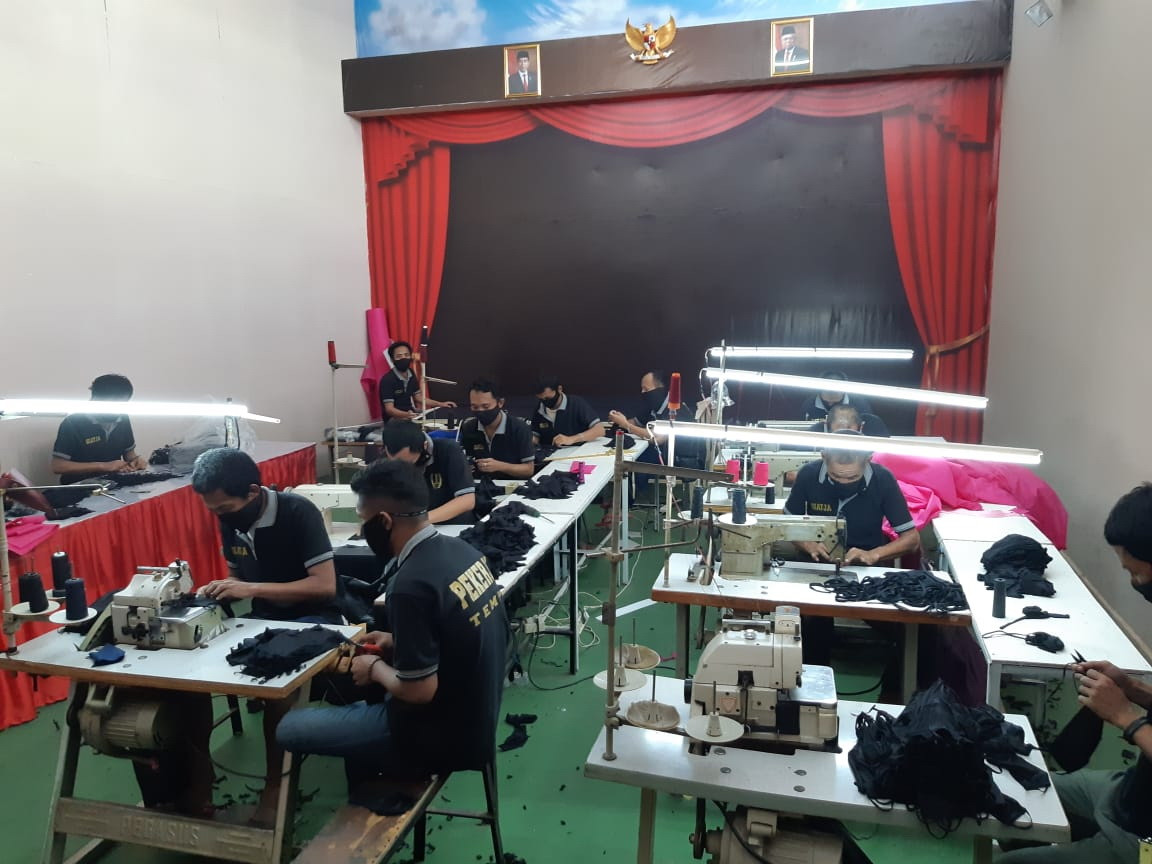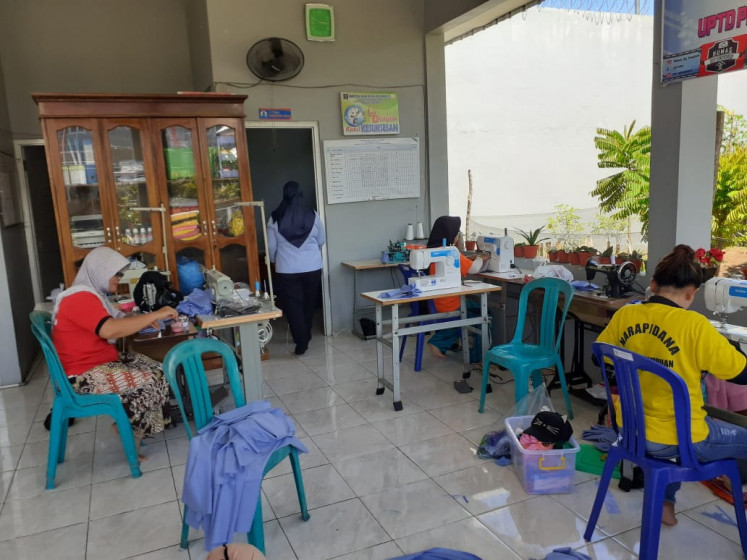Popular Reads
Top Results
Can't find what you're looking for?
View all search resultsPopular Reads
Top Results
Can't find what you're looking for?
View all search resultsIndonesian prisoners produce protective gear to combat COVID-19
Other than personal protective equipment, the prisoners also make healthcare supplies such as disinfectant and antiseptic spray, hand sanitizer, sterilizing chambers, intravenous (IV) poles and stretchers.
Change text size
Gift Premium Articles
to Anyone
P
risoners across Indonesia are producing protective gear such as masks, face shields, head covers, gowns and aprons to fulfill demand in the country’s mitigation efforts against COVID-19.
According to the Law and Human Rights Ministry’s director general of correctional facilities, Nugroho, the protective gear will be prioritized for prisoners and prison workers that are susceptible to contracting the disease.
“For prisons or detention centers that are able to produce them on a large scale, it does not rule out the possibility [for the protective gear] to be distributed. We all must unite to fight the coronavirus,” Nugroho said in a written statement on Wednesday.
Spare protective gear will be given to medical workers or local administration offices.
Inmates of Lhoksukon prison in North Aceh regency in Aceh, for example, have been distributing their self-made masks to some regions in the province.
Currently, 70 prisons are producing facemasks; some are capable of producing face shields, head covers, gowns and aprons.
Prisoners in Bengkulu's women's correctional facility make personal protective equipment for medical workers. (Courtesy of Law and Human Right Ministry Directorate General of Corrections/-)Women prisoners in Semarang, Central Java, are making 500 cloth masks a day and women prisoners in Pekanbaru, Riau, are producing dozens of gowns and aprons every day
Additionally, prisoners of Binjai Prison in South Sulawesi are able to produce 100 face shields and 50 headcovers every day.
Other than personal protective equipment, the prisoners also make healthcare supplies such as disinfectant and antiseptic spray, hand sanitizer, sterilizing chambers, intravenous (IV) poles and stretchers.
For example, a prison in Malang, East Java, has been producing 100 liters of antiseptic liquid and hand sanitizer every day.
Read also: Overcrowded and understaffed, prisons scramble to protect inmates from infection
Additionally, a prison in Polewali Mandar Regency, West Sulawesi can produce three IV poles and one stretcher every day, and a prison in Tasikmalaya, West Java can produce two sterilization chambers a week.
The Correctional Facilities Directorate General has also taken measures to curb COVID-19 transmission in prisons, such as installing sterilization chambers and conducting virtual visits and trials in prison using video calls.
“Everyone who goes in and out of prisons or detention centers is required to wash their hands and enter the sterilization chamber, which is now available in all prisons and detention centers,” said the directorate general’s secretary, Ibnu Chuldun, adding that prisons had also prepared isolation blocks for prisoners under observation for COVID-19.
According to the Law and Human Rights Ministry's February data, 524 prisons and detention centers across the country hold 268,919 inmates, including some 60,000 detainees, more than double the maximum capacity of 132,107 inmates with a national average occupancy rate of 104 percent.
Due to the overcrowding, Law and Human Rights Minister Yasonna Laoly suggested that 50,000 inmates should be released to mitigate a COVID-19 contagion. Chronic overcrowding in the national prison system, combined with poor management and a shortage of wardens, has also led to frequent prison riots.











